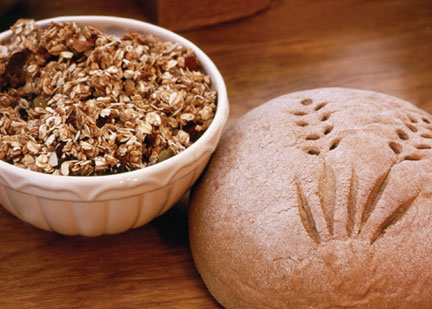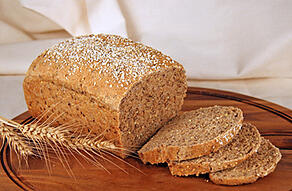My parents are alums of Texas A&M University and my younger brother is a current student there. As such, if you know anything about the Aggies, they are avid fans (and that’s an understatement). So, during my brief visit to see my family this past holiday we coordinated our Thanksgiving day entirely around making it to the Aggie football game. I always enjoy the games, but my favorite part every time is the half time show because I am able to watch the nationally famous "Fightin' Texas Aggie Band" perform. This specific marching band does so with such grace, intricacy, and intense precision all the while producing a magnificent sound. It’s truly an impressive display as they work together coordinating with their fellow band members weaving in and out of each other somehow perfectly without disruption. Watching this display made me think about how whole foods work.
It is a well known fact that you need more fiber, vitamins, and minerals to keep your body properly functioning and healthy. Many people, instead of introducing new foods into their diet, pop a supplement into their mouth, wash it down with a glass of water and consider themselves set for the day. It is a common misunderstanding that supplements are just as advantageous as if you received that beneficial element from its natural food source. This is in no way the case.
Think of the marching band I was just talking about. They work together in perfect  harmony to produce an extraordinary sound and a remarkable presentation. Now pick any one person out of that band and imagine them doing the same exact moves and playing the same exact notes, but this time alone. It provides you with something, but this something is not nearly as beneficial to you as if you had seen the whole product working together. Supplements and whole foods work the same way.
harmony to produce an extraordinary sound and a remarkable presentation. Now pick any one person out of that band and imagine them doing the same exact moves and playing the same exact notes, but this time alone. It provides you with something, but this something is not nearly as beneficial to you as if you had seen the whole product working together. Supplements and whole foods work the same way.
Supplements should supplement your diet, not replace the things in your diet. This is  because the power of whole foods is strong and goes much deeper than what we even currently know. We know that when you consume a whole food, such as the whole grain, it can promote health and can prevent many chronic diseases such as cancer. When you eat a slice of whole grain bread you consume many micronutrients, antioxidants, phytochemicals, carbohydrates, protein, and fat all in specific ratios and forms. They all work together synergistically to provide you with health benefits such as lowering risk of cancer, heart disease, obesity, and diabetes and improving your gastrointestinal health as well as controlling hunger.
because the power of whole foods is strong and goes much deeper than what we even currently know. We know that when you consume a whole food, such as the whole grain, it can promote health and can prevent many chronic diseases such as cancer. When you eat a slice of whole grain bread you consume many micronutrients, antioxidants, phytochemicals, carbohydrates, protein, and fat all in specific ratios and forms. They all work together synergistically to provide you with health benefits such as lowering risk of cancer, heart disease, obesity, and diabetes and improving your gastrointestinal health as well as controlling hunger.
If you consume just one mere component or a multivitamin as a supplement in place of  eating a slice of whole grain bread or other whole food you are selling yourself short of many beneficial components. In doing so you also disrupt the system the components of the whole food have with each other and deny yourself of the health advantages that could have resulted. Studies are consistently coming out with new discoveries of new health benefits linked to certain foods leading us to understand that the whole food truly does provide us with more benefits than the sum of the parts.
eating a slice of whole grain bread or other whole food you are selling yourself short of many beneficial components. In doing so you also disrupt the system the components of the whole food have with each other and deny yourself of the health advantages that could have resulted. Studies are consistently coming out with new discoveries of new health benefits linked to certain foods leading us to understand that the whole food truly does provide us with more benefits than the sum of the parts.
So enjoy whole foods such as Great Harvest Whole Grains to enjoy full flavor and full benefits. How do you include whole foods in your diet?




